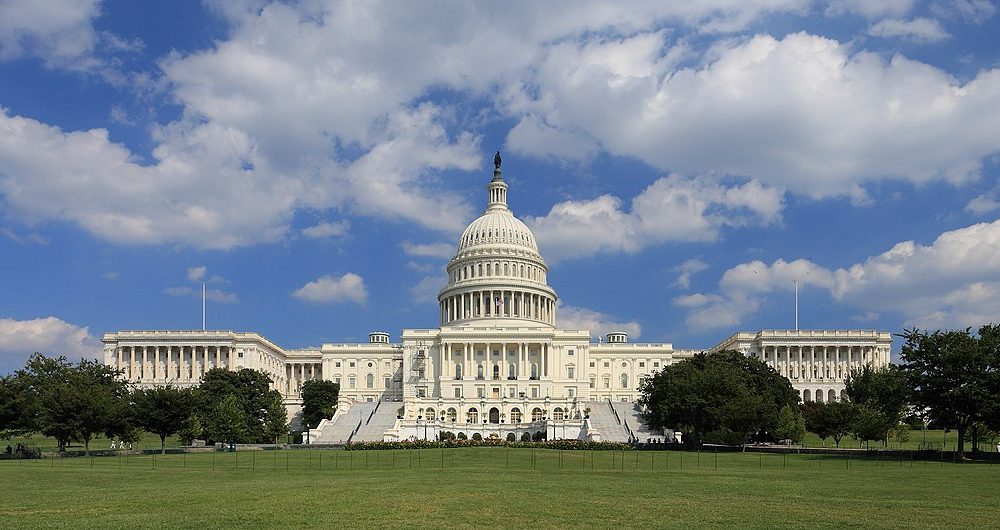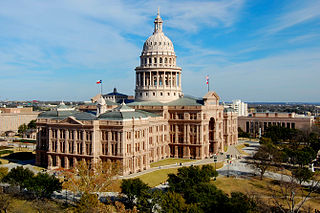March 22, 2021 •
SB1, For the People Act, Introduced in Senate while HR1, Passed in House, also in Senate

US Capitol - by Martin Falbisoner via Wikimedia Commons
On March 17, a comprehensive bill aimed at reforming U.S. campaign finance, lobbying, and ethics laws, and improving voter rights and election integrity, was introduced in the U.S. Senate. The sweeping bill, Senate Bill 1, For the People Act of […]
On March 17, a comprehensive bill aimed at reforming U.S. campaign finance, lobbying, and ethics laws, and improving voter rights and election integrity, was introduced in the U.S. Senate. The sweeping bill, Senate Bill 1, For the People Act of 2021, is companion legislation to House Bill 1, which passed the House on March 3. That bill, also called the For the People Act of 2021, was received in the Senate on March 11.
The bill would require the registration as a federal lobbyist for those counseling in support of lobbying contacts; require super PACs, 501(c)4 groups and other organizations spending money in elections and on judicial nominations to disclose donors who contribute more than $10,000; and, under the definitions of the Federal Election Campaign Act, add “paid internet or paid digital communication” to the definition of public communication and add “qualified internet or digital communication” to the definition of electioneering communication.
The bill creates a reporting requirement under campaign finance laws for disclosing certain foreign contacts and creates an obligation for political committees to notify the Federal Bureau of Investigation and the Federal Election Commission of those contacts. It also prohibits foreign nationals from participating in decision-making about contributions or expenditures by corporations and other entities; prohibits the establishment of a corporation to conceal election contributions and donations by foreign nationals; and requires foreign agents to disclose transactions involving things of financial value conferred on officeholders.
The bill defines the prohibited coordination between campaigns and super PACs, includes creating a “coordinated spender” category in the law to ensure single-candidate super PACs do not operate as arms of candidates, and defines the prohibited coordination between campaigns and super PACs. The bill would repeal existing prohibitions on the Securities and Exchange Commission from finalizing rules to afford shareholders the opportunity to know about the political spending of publicly traded companies and would require shareholder authorization before a public company may make certain political expenditures. It would also repeal existing prohibitions on the executive branch from promulgating rules to require government contractors to disclose all of their political spending.
The bill requires presidential inauguration committees to disclose their expenditures, limits aggregate contributions, and restricts funds being used for purposes unrelated to an inauguration. Additional measures in the bill include a publicly financed 6-1 matching system on small-dollar donations for Senate and presidential candidates, more ethics changes to the executive branch, and substantial changes to federal election law and voter rights.
July 28, 2017 •
Texas Special Session in Full Swing
The Texas Legislature convened a special legislative session July 18, 2017. Property tax was a topic Gov. Greg Abbott immediately put on the agenda for the session. House Bill 4 and Senate Bill 1 both, among other things, require a […]
 The Texas Legislature convened a special legislative session July 18, 2017. Property tax was a topic Gov. Greg Abbott immediately put on the agenda for the session.
The Texas Legislature convened a special legislative session July 18, 2017. Property tax was a topic Gov. Greg Abbott immediately put on the agenda for the session.
House Bill 4 and Senate Bill 1 both, among other things, require a special election be called if any municipality plans to increase property taxes on land and buildings by more than 4 or 5 percent. Senate Bill 1 was passed by the Senate this week.
City and county leaders have stated such automatic election requirements would limit their budget for basic services and force them to hold costly elections.
The special session can run for up to 30 days.
July 24, 2017 •
Rauner Threatens to Call Lawmakers Back to Springfield
Illinois Gov. Bruce Rauner is threatening to call lawmakers back to Springfield if he does not receive Senate Bill 1, an education funding reform bill, before noon today. Legislators already passed the bill but chose not to send it to […]
 Illinois Gov. Bruce Rauner is threatening to call lawmakers back to Springfield if he does not receive Senate Bill 1, an education funding reform bill, before noon today.
Illinois Gov. Bruce Rauner is threatening to call lawmakers back to Springfield if he does not receive Senate Bill 1, an education funding reform bill, before noon today.
Legislators already passed the bill but chose not to send it to the governor after Rauner promised to amendatory veto the legislation to remove grant funding for Chicago Public School pensions.
Some lawmakers are seeking ways to avoid convening an expensive legislative session and have, instead, suggested a meeting between legislative leadership and the governor.
State and Federal Communications, Inc. provides research and consulting services for government relations professionals on lobbying laws, procurement lobbying laws, political contribution laws in the United States and Canada. Learn more by visiting stateandfed.com.

